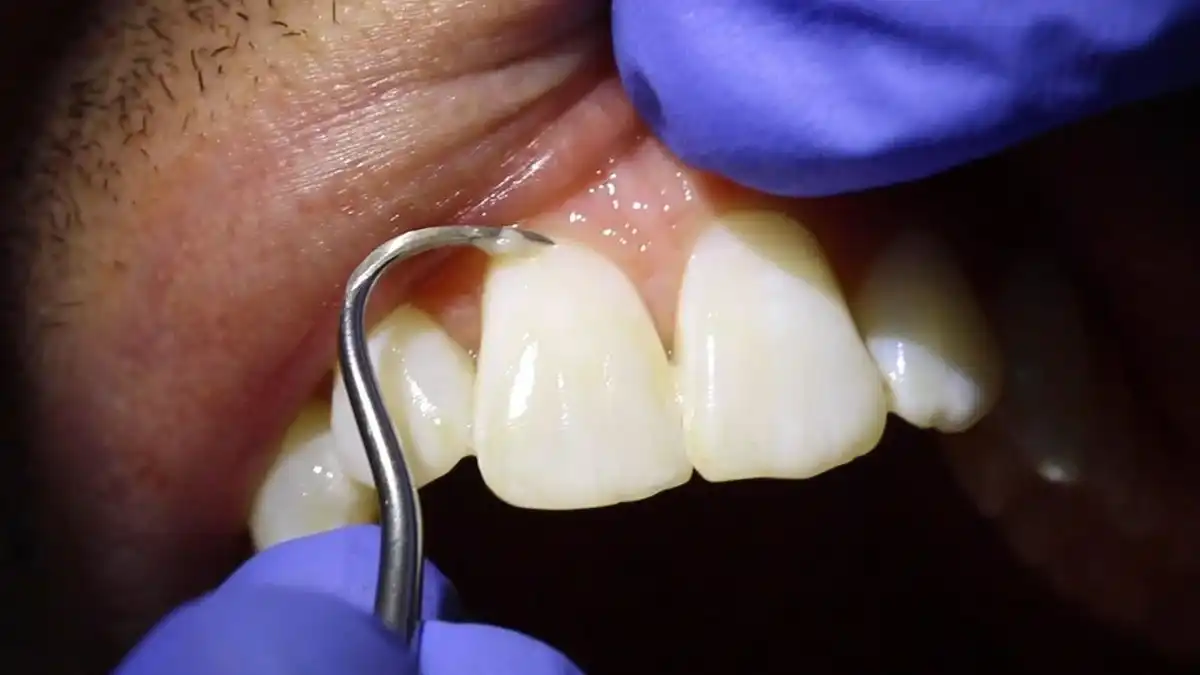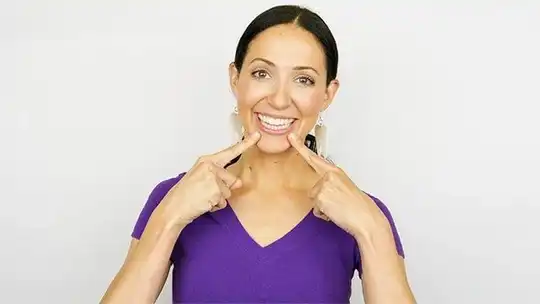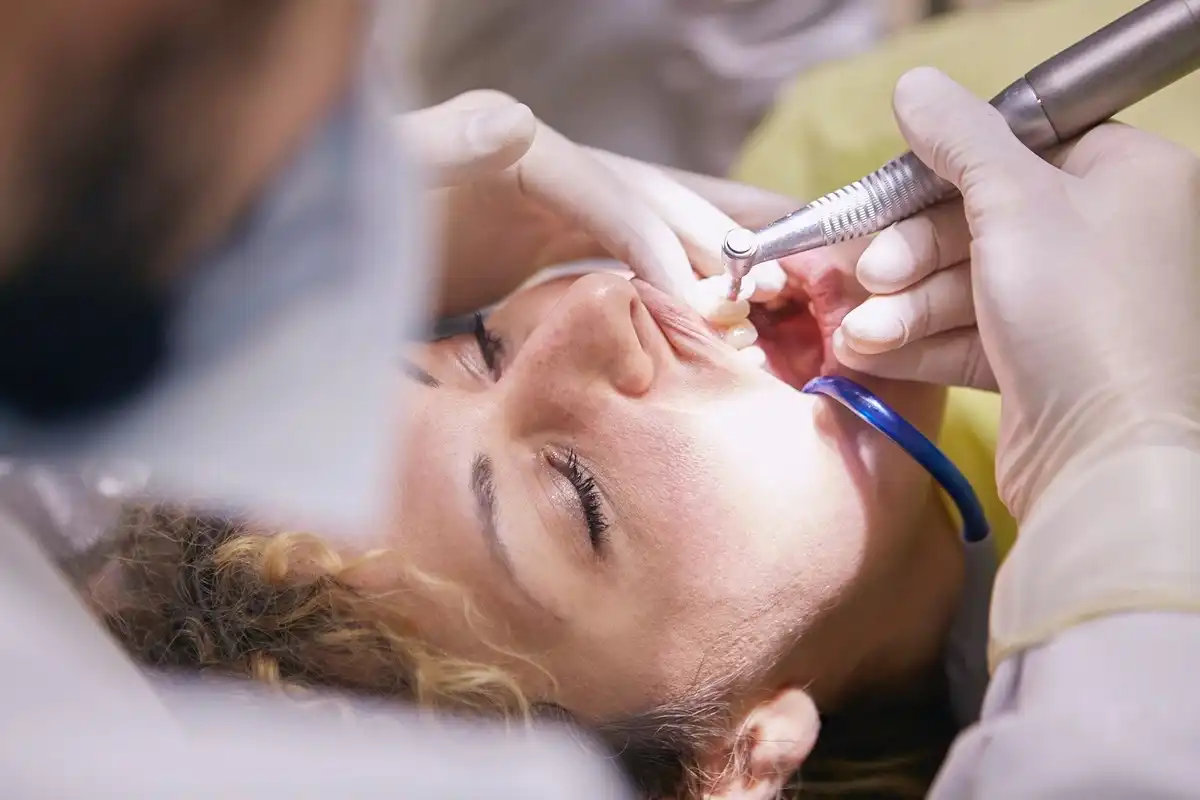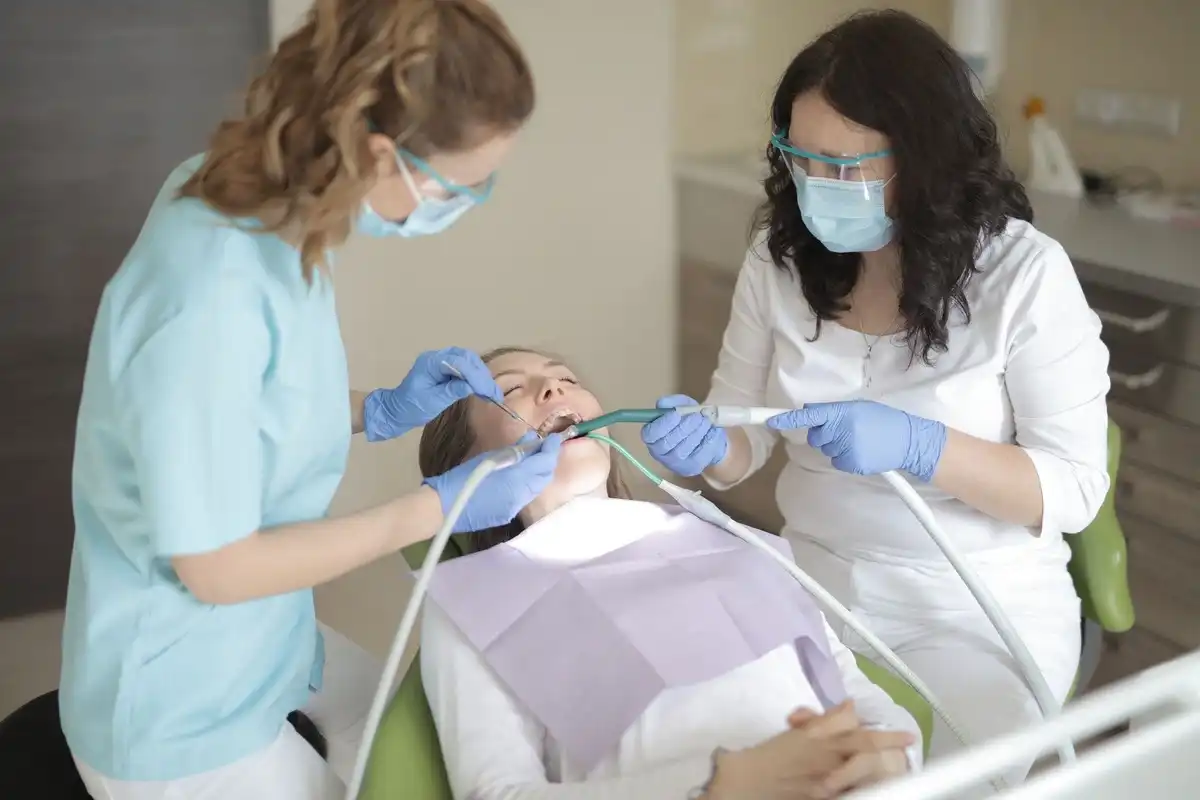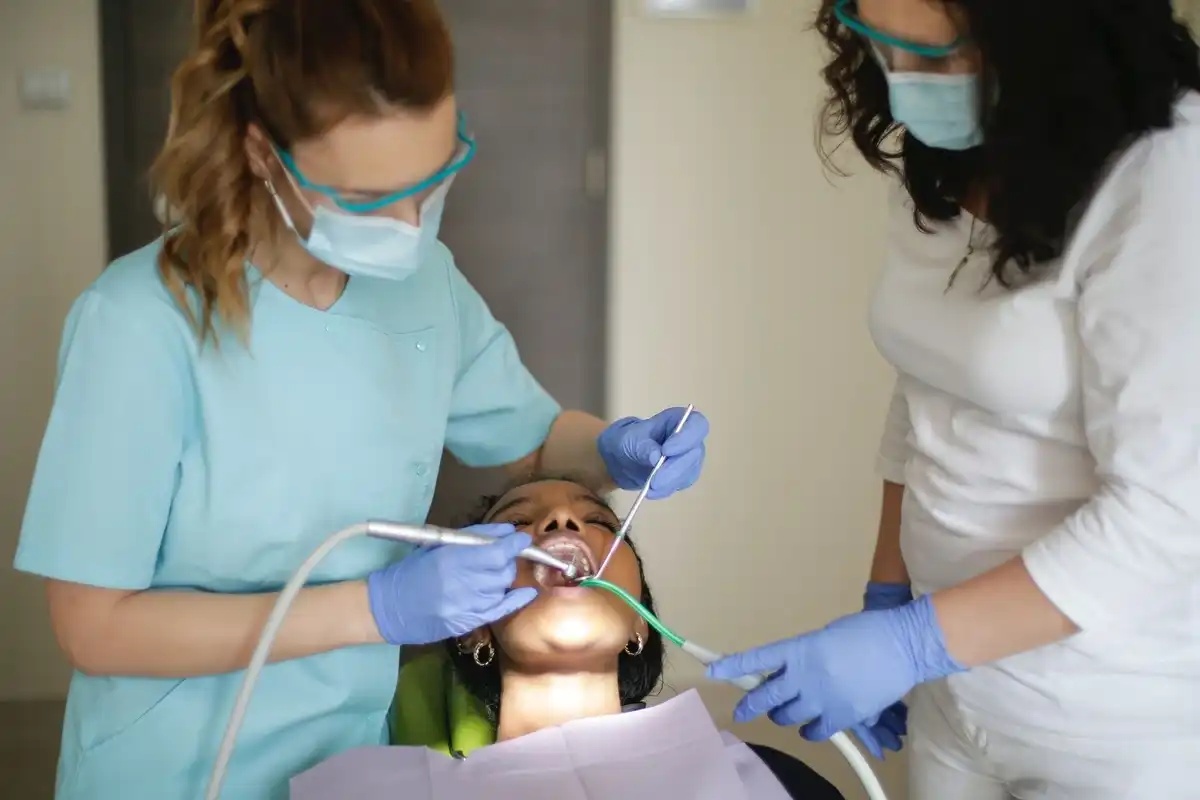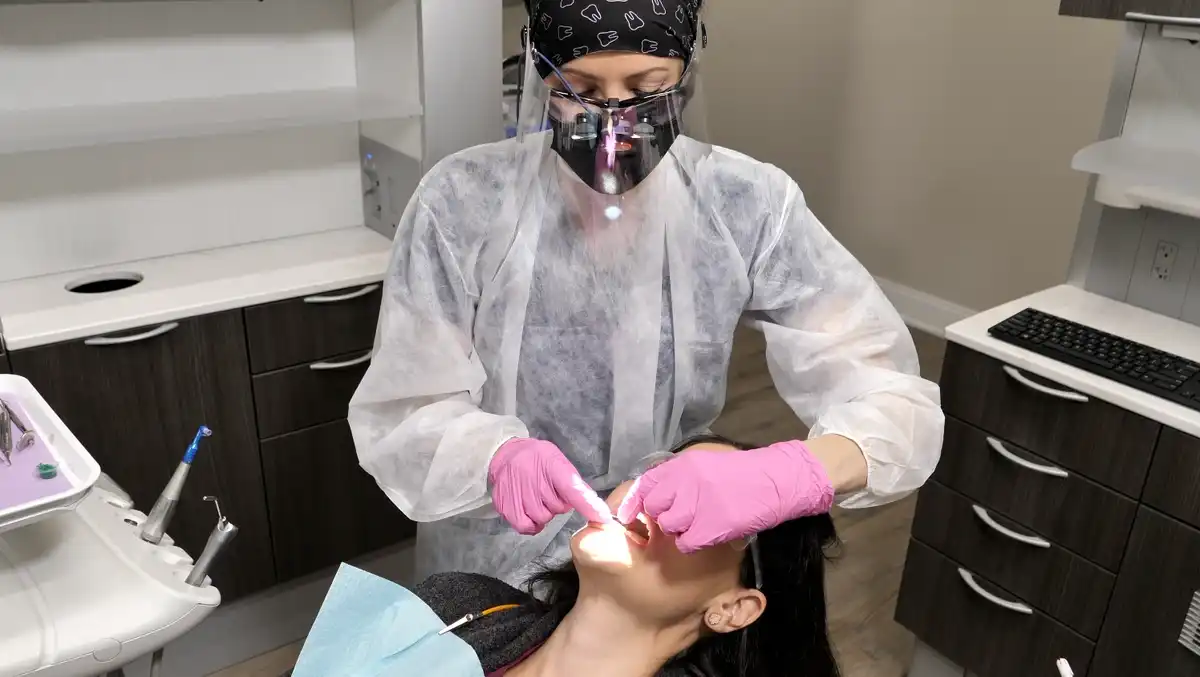PROs and CONs of being a Dental Hygienist


Every job has its ups and downs. Being a dental hygienist, pros and cons are fairly consistent regardless of where it is you’re working. Although there are a lot of really great things about being a dental hygienist, there are definitely some negatives to take into account if you’re thinking about a career change. All of us like different things about our jobs and it’s fine to admit when there are parts of it you’re not in love with. If you’re considering becoming a dental hygienist, here are the most common pros and cons to think about as you apply to dental hygiene school or are looking for your first dental hygienist job out in the real world.
What is a Dental Hygienist?
For anyone who is first getting into the investigative process of starting a career in dentistry, not every role in the office is the same. The two most frequently confused roles are your Registered Dental Hygienist (RDH) and your Dental Assistant (DA). The dental assistant plays a lot of different roles, particularly assisting the dentist in clinical procedures. But the dental hygienist works independently of the dentist and is responsible for what goes on during your dental cleaning appointment (to put it simply.) There’s a lot more to being a dental hygienist than just cleaning teeth, but that’s what most people know them for. Dental hygienists are also required to have an associate's or bachelor's degree in dental hygiene as well as state licenses to practice in a dental office. You can think of them as being on par with a Registered Nurse, except the dental equivalent. A dental hygienist is not an on-the-job training gig.
8 Pros of Becoming a Dental Hygienist
1. Improving the Lives of Other People
When you’re a dental hygienist, you get to help other people every single day. Not everyone gets to say that! By eliminating bacteria from someone’s mouth and showing them how to manage their oral health, you’re enabling them to enjoy better overall wellness at the same time. A dental hygienist helps patients connect the oral-systemic relationship between their mouth and body, which can lessen their chances of heart attack, stroke, pneumonia, diabetes, and I could go on and on. And that’s not even mentioning the confidence that you’re giving people when they have a cleaner, healthier smile!
2. Great Pay
Dental hygiene is a great paying job. The hours are generally fairly stable and you either make a per-hour rate or a per-day salary rate. How much you make a year will depend on if you’re full-time or part-time, as well as the cost of living in your area. If housing prices are lower, you’ll make less. According to the bureau of labor statistics, it’s not uncommon for dental hygienists to be making over $80,000 or $90,000 a year, depending on where you live and what state you’re in. That being said, there are some states where the cost of living is much, much less, so dental hygienists make somewhere in the $50-60k/yr. range.
3. Freedom
When considering the pros and cons of dental hygiene, being adental hygienist gives you more freedom and independence than a lot of the other roles in the dental practice. You clock in, do your thing, and clock out. Yes, you’re part of a team, but you don’t necessarily have someone coming in and checking on you to make sure you’re doing your job, or worry about a boss breathing down your back. You’ll have your own work area and space. The only time you’ll usually need one-on-one time with your boss is during treatment planning or going through the patient exam.
4. You’ll Never Bring Your Work Home With You
Literally. As a dental hygienist, you can’t ever bring work home. There are a lot of industries where people have to bring their laptops home with them to work on a project. But in dental hygiene, that’s physically impossible. The only time you might ever need to have your laptop pulled up for “work” is if you decide to take an online CE course or something on your own time. Once you leave work for the day, you’ve left it there. You don’t have looming projects hanging over your head.
5. Choice of Work Environment
Depending on what type of atmosphere and vibes you like in a work setting, you can choose between working in a small private practice with one doctor or for a big corporate organization with multiple locations and providers. But not only that, you also have various areas of specialized dentistry you can work in, depending on what your preferences are. Such as periodontics, etc. If you love working with kids and are comfortable with a fast-paced environment, consider a pediatric practice. You have a lot of options and if you don’t love one, just try another.
6. Great for Temp Work
Prefer not to hold down a full-time job? No problem. A dental hygienist can always get temping gigs to fill in for other dental hygienists are maternity leave, vacation, or to pick up extra pay around the holidays. Depending on what your family dynamics are like or if you enjoy meeting new people, you may want to temp a little here and there or on a full-time basis. With temping you’re not tied down to one office, in particular, so you’re always getting to try new things.
7. Part-Time Work
One of the biggest perks of being a dental hygienist is that it’s super easy to only work part-time. Want to work one or two days a week? No problem! Some people only work part-time because they’re busy with their kids or don’t want to hold down a full-time job. Others work two part-time jobs to keep things fresh from one day to the next.
8. Multiple Degree Options
There are several different degree options and higher education opportunities for dental hygienists. Just like nursing, you can get into the field of clinical hygiene with a two-year degree from an accredited dental hygiene school. If you have a bachelor’s degree you can also work in sales, research, or education. There are also master’s degrees in clinical hygiene, which open up an entirely new door for career options. It’s all about what you want and what’s best for your lifestyle.
7 Cons of Becoming a Dental Hygienist
1. Only Working Part-Time
Prefer to only hold a full-time job? It’s not impossible in dental hygiene, but it can be like hunting for a unicorn at times. Full-time dental hygienist jobs often include benefits and vacation pay, but they’re more challenging to find than part-time dental hygiene gigs. Normally, full-time positions are usually found in corporately owned offices. That’s not to say they don’t exist in private practice dentistry, it’s just more challenging to find them in this industry.
2. Exposure to Hazards
Dental hygienists have one of the most “at-risk” occupations when it comes to exposure to workplace hazards like blood-borne pathogens. From blood and saliva to radiation exposure, certain risks come with the job. However…as long as you practice proper infection control and trust the team you work with, these are more of a precaution than a reason to stay away from the job altogether.
3. Calling Off Work/Calling In Sick
In dentistry, our schedules tend to get booked out weeks to months in advance with few openings. So, if you’re sick and the office needs to reschedule everyone, it can be extremely stressful. It’s not easy on anyone when the dental hygienist calls off work the night before or morning of because there’s nowhere to move the patients, especially if there isn’t a temp to fill in for you.
4. No Work From Home Options
Looking for a remote dental job? Dental hygiene is not it. There’s no option for cleaning people’s teeth remotely. While there are occasionally remote dental jobs for other roles in the industry, hygiene isn’t one of them.
5. Monotony
When you’re comparing the pros and cons of being a dental hygienist, one of the biggest cons is the monotony. Doing the same thing day after day. There will be little changes from one visit to the next, but this one can be a big kicker for some dental hygienists.
Side note: There’s really a lot more in dental hygiene than just cleaning people’s teeth. We conduct sleep apnea screenings, put together smoking cessation plans, discuss nutrition, screen for oral cancer, and are always learning about new research and technology. Not to mention applying sealants or taking impressions. The monotony of hygiene is real, but it also depends on how much you put into what you’re doing if you want things to be a little different.
6. Body Breakdown
Being a dental hygienist can be really rough on your body. Especially your back, neck, shoulders, hands, and wrists. It’s extremely important to practice good ergonomics both in and outside of work. Taking care of your body is important, so be sure to stretch and get plenty of exercise. Some dental hygienists even get regular massages. You can take steps to limit this “con”, but for some people, it’s unavoidable and could mean the end of their career in clinical hygiene. There are plenty of dental hygienists out there who have been practicing for 20 or 30 years, but it tends to be fewer than what might be in other dental roles.
7. State Licensure Transfers
If you’re ever thinking about moving from one state to another, remember to keep this “con” in mind. It isn’t always easy to move your dental hygiene license from one state to another, depending on which state it is. Every state is different and some of them will have you retake certain boards, even if you already passed other national boards in the past. As of yet, there is no national hygiene license that you can transfer across state lines. Along that note, what you’re allowed to do in each state can also vary, as some do or don’t allow dental hygienists to administer local anesthesia.
Is The Field of Dental Hygiene Right for You?
Being a dental hygienist has its pros and cons. If you’re someone who wants to be able to work from home or enjoys going on business trips, dental hygiene probably isn’t a good career choice. But if you like the one-on-one relationships you’ll be able to develop with your patients and have a positive impact on their health—while enjoying the freedom and great pay of working as an RDH—then clinical hygiene is an excellent career choice.
If you’re still in love with the idea of working in dentistry but aren’t sold on the idea of doing the same thing every day, you might want to consider one of the following alternative dental careers…
Other Careers in Dentistry
1. Dentist
Dentists can perform all scopes of dentistry in the practice, providing direct patient care ranging from fillings and crowns to smile makeovers and implants. They might even clean their patients teeth! Some dentists go on to specialize in particular areas of dentistry—such as endodontics (root canals), periodontics (gum health), etc.
2. Dental Assistant
Dental assistants help the dentist during their day-to-day procedures. They’re always different. It might be a crown prep, tooth extraction, sedation procedure, orthodontic adjustment, or something else. This career is great for people who are always on the go, personable, and able to multitask.
3. Lab Tech
A lab tech is someone who physically crafts and fabricates fixed restorations like crowns and veneers. Are you great with your hands or consider yourself super artistic? This is a great option to work in dentistry without physically seeing patients in person.
Pros and Cons Of Dental Hygiene
Working as a dental hygienist has tons of pros (and a few cons, depending on how you look at it.) The pay is great, it’s usually fairly easy to find a part-time job, and you get to do your own thing in your own space. There’s a lot of independence that comes with the role and you’ll never need to bring your work home with you. Depending on what dental hygienist career path you choose, you can also go back to school for higher degrees for more career opportunities.

Make your inbox smile!
Subscribe
